Former President Donald Trump is back in the news (if he ever really left).
His campaign claimed he’d committed a federal gun crime earlier this week before quickly backtracking, which is pretty unusual on both fronts. Since the former president and current front-runner for the Republican nomination is currently under multiple felony indictments, he can’t legally “receive” a gun. Anyone familiar with Republican campaigning can probably already foresee why this was going to eventually become an issue.
Republican officials are often presented with special commemorative guns while on the campaign trail. This has been particularly true for Donald Trump given the overwhelming passion many of his supporters display for him and for firearms. His face has been engraved into many guns sold over the last seven or eight years.
It was his stated appreciation for one such gun that caused this week’s news flurry. He said he was going to buy one while on a campaign stop at a South Carolina gun store. His campaign went further. That could have been bad for him if he’d gone through with it.
But I’m more concerned about the guy who offered to give him the gun. It’s not just illegal for Trump. It would be illegal for that guy too. I explain why and the current state of the challenges to the underlying ban, which haven’t voided this prohibition in the way some seem to believe.
We also have some news out of Maryland, where a judge blocked much of the state’s Bruen-response bill. And Contributing Writer Jake Fogleman explains why the Supreme Court is probably going to have to take up a magazine ban case real soon.
Plus, California Rifle and Pistol Association’s Chuck Michel joins the podcast to talk about the fight against his state’s magazine ban.
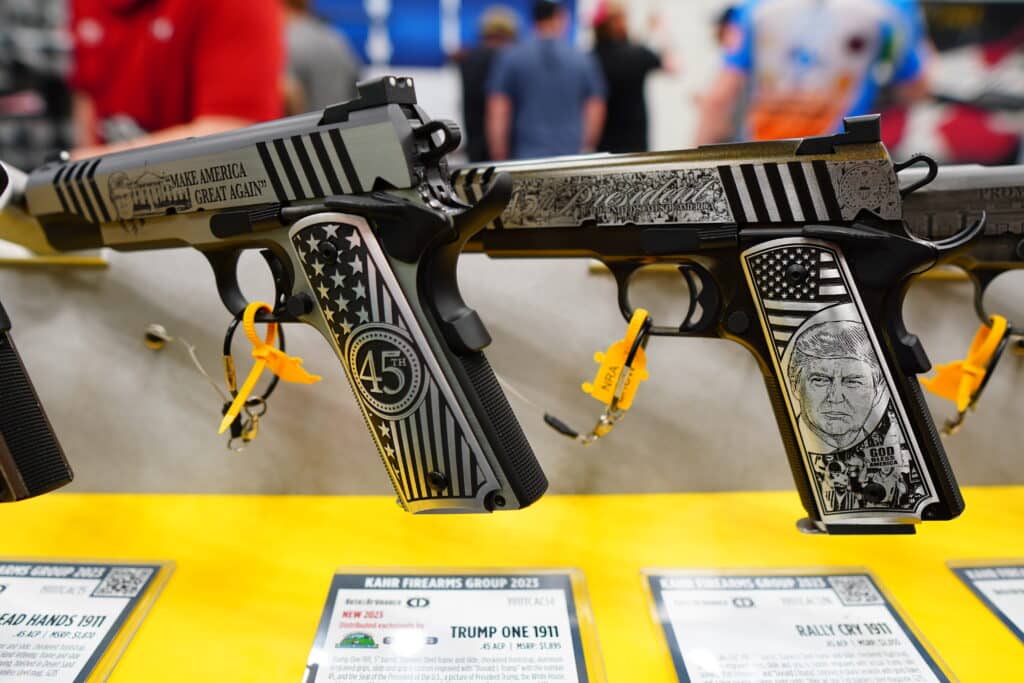
Analysis: Don’t Try to Give Trump Your Commemorative Gun at a Campaign Stop [Member Exclusive]
By Stephen Gutowski
He can’t legally accept it, and you can’t legally transfer it to him.
On Monday, former President Donald Trump created a stir at a campaign stop in South Carolina. During a visit to a gun shop, Trump was presented with a Glock that featured his face. He liked the gun and declared he was going to buy one. The person presenting it to him offered to give him the gun for free. Campaign spokesman Steven Cheung posted a video of the interaction and claimed Trump had in fact bought the gun.
This would be a pretty unremarkable exchange for somebody running as a pro-gun candidate under normal circumstances. Of course, the Trump 2024 campaign is happening under anything but normal circumstances. The former president, running after losing re-election in the previous election, is facing multiple felony indictments across four different jurisdictions.
That makes the exchange remarkable because it is illegal for anyone under felony indictment to buy new guns. 18 U.S.C. § 922(n) makes it a federal crime for anybody under a state or federal felony indictment to “receive” guns.
The prohibition is a bit different from the better-known ban on convicted felons possessing guns. Just handling a gun doesn’t necessarily trigger the crime. So, Donald Trump can likely keep and shoot the guns he might already own. But he can’t buy new ones or receive them for free.
The Trump Campaign seemed to acknowledge this fact because, after I pointed it out, Cheung deleted his initial claim that Trump bought the gun and reversed course. He told CNN’s Kristen Holmes that Trump did not buy the gun. It was a rare reversal from the Trump Campaign, and it shows how seriously they took the potential of being charged with another felony.
And anyone considering gifting Donald Trump a gun should take the potential punishment equally seriously. The same federal law that bars him from receiving a gun makes it illegal for anybody else to give him one.
18 U.S.C. § 922(d)(1) makes it unlawful for anybody “to sell or otherwise dispose of any firearm or ammunition to any person knowing or having reasonable cause to believe” they are “under indictment for, or has been convicted in any court of, a crime punishable by imprisonment for a term exceeding one year.” It’s going to be difficult for anybody who does so to argue they aren’t aware he’s facing multiple felony indictments. After all, it’s one of the biggest political stories in American history.
As with most federal gun prohibitions, there has been a significant dispute surrounding this provision since the Supreme Court handed down New York State Rifle and Pistol Association v. Bruen last year. A number of criminal defendants challenged the constitutionality of the law afterward. And a few have had success.
One case even garnered national attention. Jose Gomez Quiroz, a Texas man accused of buying guns while under felony indictment, had his charges tossed after a United States District Judge found the prohibition didn’t meet Bruen‘s history and tradition standard.
“Although not exhaustive, the Court’s historical survey finds little evidence that § 922(n)—which prohibits those under felony indictment from obtaining a firearm—aligns with this Nation’s historical tradition,” Judge David Counts, an Obama appointee who was reappointed and confirmed under Trump, wrote in United States v. Quiroz. “As a result, this Court holds that § 922(n) is unconstitutional.”
The Fifth Circuit has already held oral arguments in the appeal of Judge Counts’ ruling but hasn’t issued a ruling. So, the decision by Counts, while potentially influential, is not binding precedent. Additionally, several other district judges have come to the opposite conclusion.
Judge Ana de Alba’s ruling earlier this year is the most notable to uphold the ban on people under felony indictments receiving guns. That’s because the Biden appointee ruled against dropping the charges even after doing the Bruen test. She ruled the ban fit with the nation’s history and tradition of firearms regulation.
She specifically identified two kinds of Founding Era gun restrictions that were analogous to the modern law. The first dealt with bans on selling or giving guns to certain groups of people “deemed to be dangerous including those unwilling to take an oath of allegiance (to the crown and later the states), slaves, and Native Americans.”
“In this historical backdrop, the historical dangerousness laws as well as Section 922(n), cover only a subset of persons that were (are) perceived as more likely to commit crimes and not the public at large,” Judge de Alba wrote in United States v. Bartucci. “It can also be said that the burden imposed by Section 922(n) is less than the historical dangerousness laws because Section 922(n) only prohibits an individual under indictment from shipping, transporting, or receiving a firearm for a temporary period; it does not prohibit possession of a firearm.”
The second kind of analogous restriction she found was surety laws that forced people accused of being dangerous to post a bond in order to bear arms.
“As Bruen instructs, the best way to undertake a historical analysis is by understanding the scope the Second Amendment had when it was adopted in 1791,” she wrote. “Thus, the surety laws then in place only required a justice of the peace to decide whether the accused’s Second Amendment rights were to be restricted; they had no ‘selfdefense’ exception. Accordingly, although Section 922(n) may not be a ‘dead ringer for historical precursors,’ this Court finds that it is sufficiently analogous to pass constitutional muster.”
As Judge de Alba noted in her decision, there has been an almost even split among lower court judges on the question of the law’s constitutionality. Three have upheld it while four have struck it down.
That makes for high drama as the court cases move forward, and even provides Donald Trump an opportunity to challenge the law on Second Amendment grounds if he wants to. But it doesn’t change anything about how the law is currently being enforced. There is no injunction at either the circuit or national level.
As of now, it remains illegal to sell or give a gun to somebody under felony indictment. So, bottom line, don’t give former President Trump a gun with his face on it. Or any other kind of gun for that matter.
Podcast: California Rifle and Pistol Association’s Chuck Michel on Blocking the Magazine Ban [Member Early Access]
By Stephen Gutowski
This week, we’re focusing back on the Golden State.
It’s once again in the news because a federal judge has found one of its strict gun-control laws unconstitutional. This time, it was the ban on magazines that hold more than ten rounds of ammunition. So, we decided to bring on the head of the group that beat the ban.
California Rifle and Pistol Association President Chuck Michel gave us his insight into the case. He said the outcome was expected because this was effectively a retread. Duncan v. Bonta was initially decided in favor of the gun-rights plaintiffs only for it to be reversed by an en banc panel of the Ninth Circuit Court of Appeals only for the Supreme Court to grant, vacate, and remand that ruling.
The case is the first of those remanded by the High Court in the wake of the Bruen decision to reach a ruling. That ruling accelerates the magazine ban issue back up the chain in what will likely end with another Supreme Court showdown.
Of course, as California’s magazine ban was being tossed, Governor Gavin Newsom (D.) signed new restrictions on gun carry and a sin tax on firearms and ammunition. Michel explains the new laws and how his group has already filed challenges to them.
Plus, Contributing Writer Jake Fogleman and I discuss the Trump Campaign backtracking on claims he bought a gun while under felony indictment after finding out it would be illegal.
The show is available on your favorite podcasting app or by clicking here. Video of the episode is also available on our YouTube channel. As always, Reload Members get access on Sunday. Everyone else can listen on Monday.
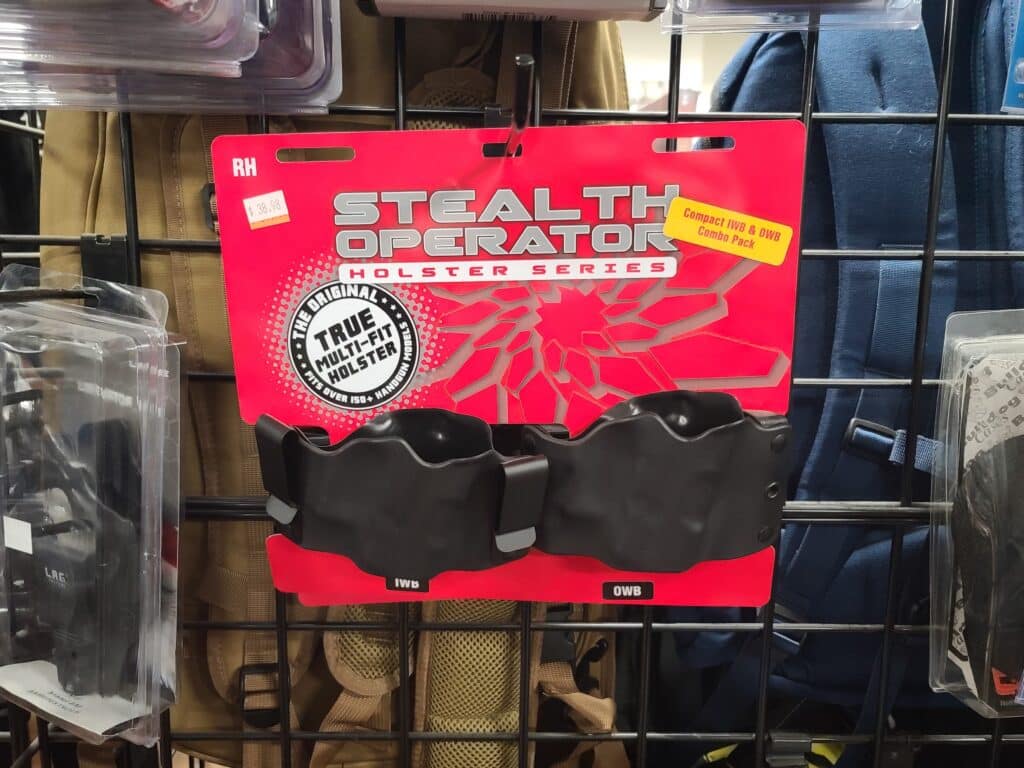
Federal Judge Blocks Many of Maryland’s New ‘Gun-Free Zones’
By Stephen Gutowski
Maryland can’t ban those with gun-carry permits from carrying in large swaths of the state.
That’s the ruling handed down by United States District Judge George L. Russell, a Barack Obama appointee, on Friday. He found many, though not all, of the state’s latest gun-carry restrictions likely violate the Second Amendment. He issued a preliminary injunction blocking enforcement of those restrictions.
“Plaintiffs are correct that the public has a strong interest in upholding constitutional rights and the State is not harmed by an injunction preventing it from enforcing unconstitutional laws,” Judge Russell wrote in Kipke v. Moore. “Therefore, because Plaintiffs have shown a likelihood of success in their challenge to the private building consent rule and the regulations on public demonstrations and locations selling alcohol, the balance of the equities and the public interest tip in Plaintiffs’ favor as to those claims, and the Court will enjoin enforcement of those provisions.”
The ruling makes Maryland the latest state to run headlong into further constitutional issues as it attempts to respond to the Supreme Court finding its previous gun-carry restrictions were also illegal. In 2022’s New York State Rifle and Pistol Association v. Bruen, the High Court ruled permitting laws that gave too much subjective leeway to officials were unconstitutional and then went on to establish that modern gun laws only clear the Second Amendment if similar laws existed at the Founding.
Lawmakers in Maryland and several other states affected by the decision were outraged. They proceeded to craft similar Bruen-response laws that vastly expanded areas off-limits to even licensed gun carriers. Those laws often barred gun carry in parks, stadiums, restaurants, transportation hubs, at protests, or even in specific neighborhoods (such as New York City’s Times Square). They also flip the presumption for carrying on publicly accessible private property by making it a crime unless the owner posts a sign allowing it.
Federal judges in New York, New Jersey, and Hawaii have already found Bruen-response laws unconstitutional. Now Maryland joins that list.
“The deprivation of a constitutional right ‘unquestionably constitutes irreparable
injury.’ Thus, in the context of an alleged constitutional violation, the likelihood of irreparable harm necessarily depends on the likelihood of success on the merits of the claim,” Judge Russell wrote. “Accordingly, because Plaintiffs have shown a likelihood of success on the merits as to their challenges of the firearm restrictions in private property, locations selling alcohol, and within 1,000 feet of public demonstrations, they have also established irreparable harm as to those claims only.”
Judge Russell decided not to block restrictions on carrying on school grounds, in government buildings, and at stadiums, racetracks, amusement parks, or casinos.
Still, gun-rights advocates celebrated his ruling. Maryland Shall Issue, the Second Amendment Foundation, and the Firearms Policy Coalition all served as plaintiffs in the case, which was combined with another challenge.
Alan Gottlieb, founder of the Second Amendment Foundation, called the ruling a warning to other states pursuing similar laws.
“Maryland is one of a handful of states that have adopted new statutes designed specifically to get around the U.S. Supreme Court’s ruling in the 2022 Bruen case, by spreading a very wide blanket over areas where lawful concealed carry is prohibited,” he said in a statement. “This is a signal that sort of legislative waltzing is in trouble.”
Maryland Shall Issue put it more succinctly.
“It’s a big win!” the group tweeted. “Some of the most egregious restrictions are enjoined from enforcement.”
The rulings against Bruen-response laws in New York, New Jersey, and Hawaii have been appealed and most remain in effect as of today. Maryland Attorney General Anthony Brown (D.) did not respond to a request for comment on whether he planned to appeal.
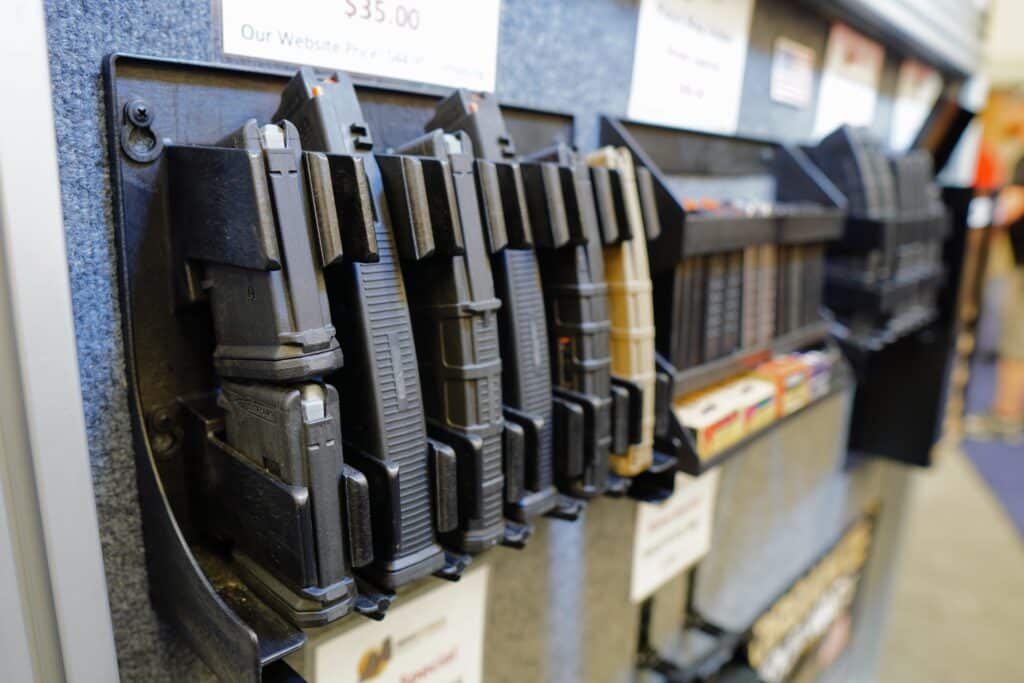
Analysis: Judges Diverge on Whether Second Amendment Protects Ammo Magazines [Member Exclusive]
By Jake Fogleman
Are ammunition magazines constitutionally protected arms? Or are they simply accessories incidental to the weapons covered under the Second Amendment?
Different judges have reached wildly different conclusions since the Supreme Court’s decision in NYSRPA v. Bruen last June, particularly regarding the so-called large capacity magazines often banned in blue states. It is no surprise then that the outcomes of the various legal challenges taking aim at those prohibitions have primarily been settled depending on which side a particular judge falls on this very question. Two major decisions handed down in the last week demonstrate this.
Last Friday, U.S. District Judge Roger Benitez struck down California’s ban on ammunition magazines capable of holding more than ten rounds.
“This case is about a California state law that makes it a crime to keep and bear common firearm magazines typically possessed for lawful purposes,” Judge Benitez wrote in Duncan v. Bonta. “Based on the text, history, and tradition of the Second Amendment, this law is clearly unconstitutional.”
Just three days later, U.S. District Judge Mary Dimke upheld Washington state’s nearly identical magazine ban.
“At present, the evidence in the record is insufficient to establish that Plaintiffs are likely to prove that large capacity magazines fall within the Second Amendment right,” Judge Dimke wrote in Brumback v. Ferguson.
Benitez argued that ammunition magazines are part and parcel of the functional operation of a firearm, which themselves are self-evidently “arms.” Therefore, the magazines themselves constitute arms in the same way for the purposes of the plain text of the Second Amendment.
“While the Second Amendment does not explicitly mention ammunition or magazines supplying ammunition, ‘without bullets, the right to bear arms would be meaningless,’” Benitez wrote. “This is because the right to keep firearms for protection implies a corresponding right to obtain the bullets necessary to use them.”
“By extension, ‘arms’ includes the magazine component necessary to supply the bullet into the chamber of the gun,” he added. “Consequently, whether thought of as a firearm able to fire a certain number of rounds because of its inserted magazine, or as a separate ammunition feeding component, magazines are usable ‘arms’ within the meaning of the Second Amendment.”
As a result, Benitez continued his Bruen analysis by reviewing the ban in light of the country’s historical tradition of arms regulation between the Founding Era and Reconstruction—ultimately dealing it a fatal blow.
Dimke, on the other hand, took a narrower reading of a particular historical definition of the word “arm” and concluded that magazines on their own did not fit the bill.
“A magazine is a part of a firearm, rather than a ‘weapon[] of offence, or armour of defence,’ or a ‘thing that a man wears for his defence, or takes into his hands, or useth in wrath to cast at or strike another,’” Dimke wrote, citing a definition of “arms” used in the Supreme Court’s Heller decision. “On its own, it cannot be used to attack or defend; a magazine with increased capacity simply reduces the frequency of reloads required when discharging a firearm.”
Once Dimke determined that magazines fell outside the scope of the Second Amendment’s text, her analysis was essentially complete—at least for the purposes of deciding whether to issue a preliminary injunction—and Washington’s ban was allowed to stand.
But even beyond the two most recent rulings, whether magazines are considered “arms” has thus far served as the critical juncture in several other federal decisions examining magazine bans after Bruen.
Before ultimately blocking Illinois’ ban on certain magazines and semi-automatic weapons, U.S. District Judge Stephen McGlynn sided with Benitez’s understanding of the question.
“This Court agrees that magazines are ‘arms’ as used in the plain text of the Second Amendment,” he wrote. “Plaintiffs are correct that ‘[t]his is not even a close call.’ If Defendants’ own expert incorporates magazine capacity into his definition of a firearm, given his level of expertise, it would be unreasonable to expect the original public meaning of the plain text to not reflect a similar understanding.”
Meanwhile, federal judges reviewing similar magazine bans in Oregon and Rhode Island upheld those states’ bans after ruling that the text did not apply to large capacity magazines.
“In sum, the evidence at trial shows that while magazines may be necessary to render firearms operable, [large capacity magazines], as a subset of magazines, are never necessary to render firearms operable,” Judge Karin Immergut wrote in Oregon Firearms Federation v. Kotek. “Accordingly, this Court finds that [large capacity magazines] are not ‘bearable arms’ as that term is used in Second Amendment jurisprudence.”
“The plaintiffs have failed in their burden to demonstrate that [large capacity magazines] are ‘Arms’ within the meaning of the Second Amendment’s text,” Judge John McConnell wrote in Ocean State Tactical v. Rhode Island. “[T]he word ‘Arms’ was a general term for weapons such as swords, knives, rifles, and pistols, but it did not include ammunition, ammunition containers, flints, scabbards, holsters, or ‘parts’ of a weapon.”
To be sure, whether certain magazines meet the definition of “arms” as used in the Second Amendment is not the sole dispositive factor in deciding whether bans on them can pass constitutional muster. Indeed, federal judges in Connecticut, Delaware, and Washington D.C. all upheld magazine bans despite finding that they constituted “arms” under the Second Amendment, either by determining that they were not “in common use” for self-defense or because they represent a “dramatic technological change and unprecedented societal concerns for public safety.”
Nevertheless, it has become abundantly clear that whether or not a judge is sympathetic to the idea that magazines are “arms” is the most relevant dividing line in this hotly contested slice of Second Amendment jurisprudence. It will undoubtedly be the hinge point in many future rulings as these bans continue to be litigated.
That’s it for now.
I’ll talk to you all again soon.
Thanks,
Stephen Gutowski
Founder
The Reload




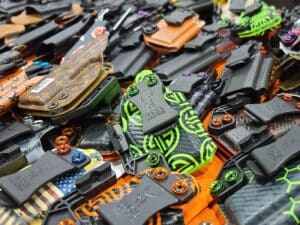
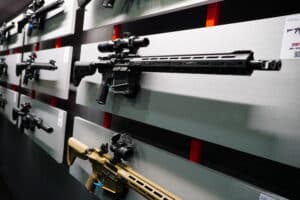


Only Members can view comments. Become a member today to join the conversation.